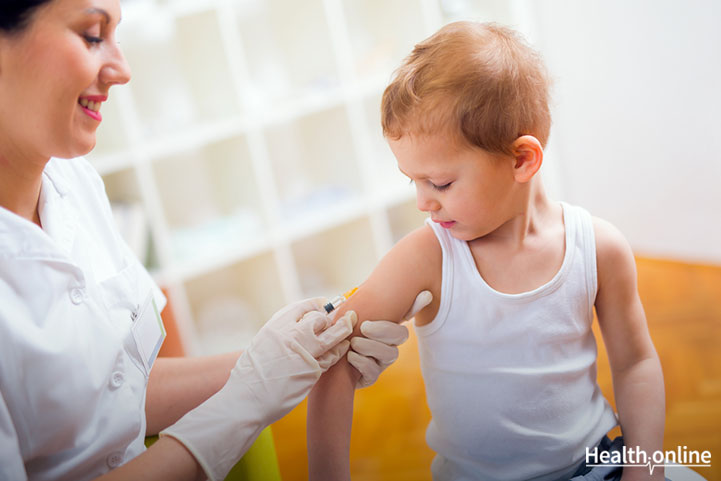
Treatment & Prevention of Measles
There’s no specific prescription to treat measles—treatment approaches are only meant to relieve measles symptoms. After one is treated, the condition is normally improved within seven to ten days. Your doctor will probably suggest that you stay isolated at home until the symptoms disappear. For instance, you may be advised to skip work for at least four days from when the first rash appears, in order to avoid transmitting the virus to other people.
You may also be advised to stay away from people who are more vulnerable, such as pregnant women and children. If your child is infected, you may be advised to allow him/her to skip school for a few days, to reduce the risk of spreading the infection.
Several measures can be taken to protect those who are vulnerable:
Immune serum globulin —This is a protein injection that can be administered to people with weakened immune systems such as infants and pregnant women, in order to prevent the disease from developing. Mayo Clinic states that, once given within six days of exposure to the virus, this protein injection can prevent measles, or make its symptoms less severe.
Post-exposure vaccination —People who aren’t immunized, including infants, can receive vaccination within 72 hours of exposure to the virus, to provide needed protection against measles. If the disease still develops, it usually lasts a shorter time and has milder symptoms.
Besides these two treatment options, there are a number of things one can do to relieve measles symptoms. The following are some of the most useful measures:
- In case of vitamin A deficiency, Vitamin A supplements can be given to prevent serious complications that may arise from measles infection.
- In case of bacterial infection, such as a ear infection or pneumonia, your doctor may prescribe an antibiotic.
- To relieve fever, aches and pains, you may take ibuprofen or paracetamol. However, these should be taken as prescribed by the doctor and some (such as aspirin) should not be given to children under the age of 16.
- In case of dehydration, it is advised that you or your child take plenty of water (preferably six to eight glasses of water a day).
- If you notice crustiness around yours or your child’s eye, gently clean the area with warm, damp cloth.
- Humidifiers (natural moisturizing agents that can relieve dryness) can be used to ease sore throat and cough.
- An infected person is also advised to have plenty of rest, in to boost order his/her immune system.
Prevention against Measles
Routine measles vaccination for kids, combined with mass immunization campaigns across the globe, are key public health strategies to reduce global measles deaths. According to the World Health Organization, measles vaccination has been in use for over 50 years, and has resulted in about 80 percent drop of measles death since 2000.
In the United States, the measles vaccine is routinely given when the child is about 12 to 15 months old (sometimes it is recommended as early as six months), and a booster shot is then given when the child is between four and six years old. Newborns normally carry their mother’s’ immunity for several months before they need to receive their vaccines.
Adults in the US do not require the measles vaccine if they:
- Are found to be immune to the disease after a blood test.
- Had a MMR vaccine, plus a second dose of measles vaccine when they were children.
- Received two MMR shots when they were between 12 and 15 months old.
- Were born or lived in the U.S before 1957.
The measles vaccine not be taken by people with severe allergies to an antibiotic called neomycin (or gelatin). It should also not be taken by pregnant women, or those who plan to get pregnant in the near future. If your immune system may be compromised by a health condition (or a treatment plan), you should consult your doctor before receiving the vaccine.




